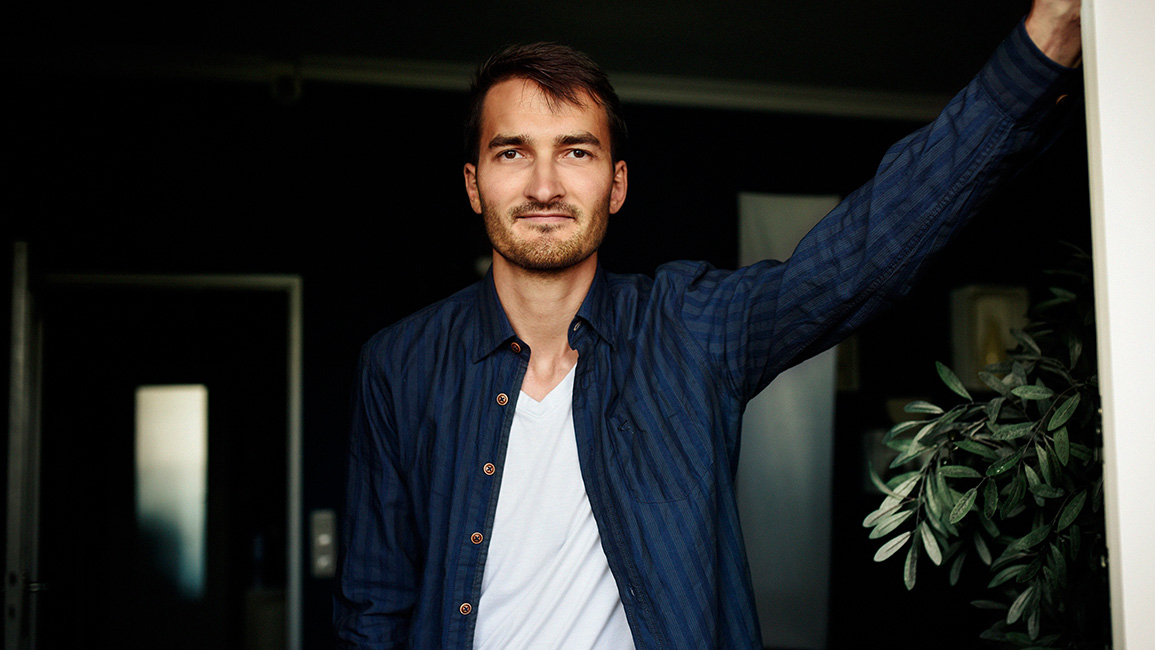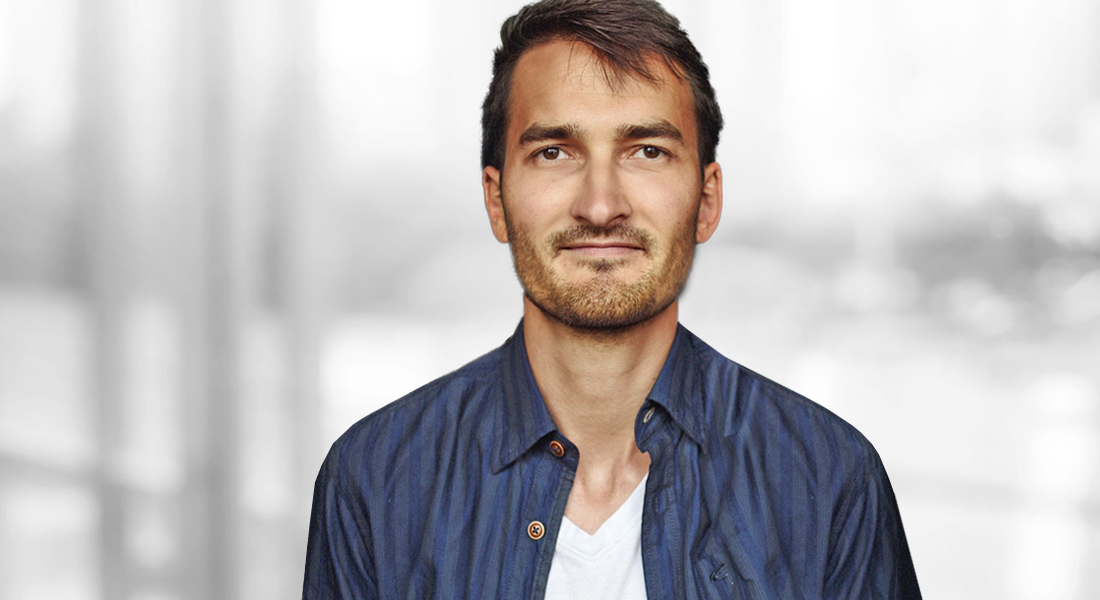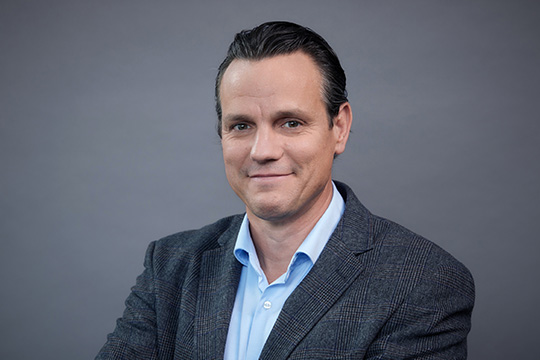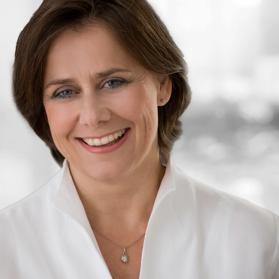This is what Lino Zeddies, real-utopian, economist and author, says. Because if - as it can be observed at present - dystopian world views for individuals, companies and society increase in a world dominated by crises, the balance is disturbed. Utopias that set a positive focus for the future are missing. Detecon's Managing Partner Steffen Roos has asked what recommendations can be derived from this for companies.
Steffen Roos: The term utopia means "non-place," a nowhere, something that does not exist. Why do you consider the work on " utopian projects" to be purposeful in dealing with real challenges?
Lino Zeddies: Every organization and every project usually starts with an idea. This is also a "non-place" at the beginning but can later develop its power and become reality - and is then no longer a "non-place". That is why utopias have great power and provide orientation as guiding principles for societies, companies and individuals, so that they can focus on the future and their own goals.
We as an organization also call ourselves the "Center for Real Utopias", whereby the term real utopias plays with the contradiction. For us, however, it is a matter of seeing utopias not just as art or as a fun activity, but it is a matter of using their power to make a difference in the real world.
The term utopia is also somewhat difficult in itself because it often refers to a positive place - as opposed to dystopia. This is because there is actually a separate term for it, eutopia. However, in the English language, eutopia and utopia are pronounced the same, so utopia is used for both. Therefore, as a rule, a good "non-place" is meant, which is what also we are referring to.
What do you see as the key challenges of the present time? Socially, individually and for companies?
The greatest challenge of our time is the climate crisis. This is closely coupled with other crises and, in particular, with the increasing complexity of our world and thus, overwhelmed institutions and ways of thinking. We therefore need updates to our democracy, our economy and more or less all social institutions.

Lino Zeddies is a consultant for transformation, self-organization and utopia development at Reinventing Society - Center for Real Utopias. After working as a pluralist economist, money reformer and coach where he dealt intensively with social as well as inner transformation, his work is now focused on integral social development. In April 2020, he published the book "Utopia 2048", in which he combines the numerous small and large solutions for a more beautiful world in a narrative way.
We, as Detecon, discuss the opportunities and risks of digital technology in the context of ecological sustainability intensively with our clients. What is your point of view on this topic?
I always see technology as a double-edged sword that holds both: potentials and risks. And in which direction the trend develops depends, in the case of technologies, on how they are used. That is why I'm always very cautious when technology is seen as a universal redeemer and when technology and digitization are generally seen as something positive.
Technology can have a very positive impact, but whether it succeeds depends on many other surrounding conditions. These include our institutions and the strength of democracy. Also, the climate crisis is ultimately a technology crisis as it is caused by technologies that are harmful to the climate because technologies have not been used sensibly. So I don't see that more technology alone will solve the problems.
At the same time, in my view, most of the technologies needed to solve the climate crisis already exist, but are still relatively unknown and poorly implemented and scaled. Therefore, it is much more important to involve institutions, focus on the "how" and ask ourselves, "How do we use technologies in a meaningful way?". New technologies such as cryptocurrencies or smart contracts can then unleash great social potential, but only if we also have the necessary institutions that use them sensibly.
Does the risk-oriented or opportunity-oriented view of technologies predominate here? Which side of the coin do you see at the top?
It's difficult to generalize, because it depends on the surrounding conditions. I think there is often an imbalance in the sense that too little attention is paid to the risks and at the same time the potentials in society are exaggerated. But I'm by no means saying that technologies are bad. There always needs to be a certain balance, and we have to consider both sides equally.
You have already talked about dystopia and the challenges of digitalization and environmental sustainability. These are often described in the discussion with dystopian analogies such as "Mad Max," "Brave New World" and "1984". How do you counter the pessimists and what puts you in a positive frame of mind?
I find it fascinating that Netflix is full of dystopias and that there are hardly any utopias within the media. Dystopias are definitely justified as a warning against undesirable developments and potential dangers. I believe that the direction we are currently heading to with regard to the climate crisis is very alarming and that some of these dystopias are not that far-fetched. But in any case, we also need utopias that show potentials and goals that can be achieved. Then we don't focus on the negative things but ask ourselves questions like: "Where do we want to go and where are these better paths that we can take?".
But unfortunately these utopias are so far largely absent. There is a massive imbalance in favor of dystopias, and that is dangerous.
However, what makes me feel positive is that some utopias are being created right now. In literature, a few books with an utopian focus have appeared in the last two years, and some films are already being planned. While this is still way too little, at least some seeds have been sown here to counteract the imbalance. And from a real-utopian perspective, there are already quite a few utopias in the sense of positive places. By this I mean the many inspiring solutions, approaches, companies and innovations out there, of which most people are as yet unaware.
This is why I recommend things like "Good News", to deal with these utopias to a greater extent and to get positive inspiration instead of sinking into Netflix dystopias and hopelessness.
Let's look ahead into the year 2040. Can you outline the key aspects of your own personal utopia?
Ideally, I see the following for the next 20 years: Democracy has undergone major upgrades, there is now a Ministry of Social and Democratic Development which is consistently working on deepening and developing democracy throughout society. There are loose citizens' councils for difficult decisions, in which citizens are involved to intensively discuss crucial social issues - and eventually achieve convincing results.
There are also new legal forms for companies and steward ownership. The economy has also changed fundamentally and is more focused on the common good and less on profit. Profit is now a secondary condition of creating meaningful value in society. And, democracy has not stopped at business, which is why companies are much more participatory. There is more work on an eye-to-eye level and responsibility is transferred, which releases more creativity among employees.
Schools have become places of good living, where young people learn to develop their abilities and gifts, connect with their needs and deal with conflicts constructively. Here they are educated to become responsible people in society.
All this has then led to us being on a good path to averting the climate crisis. Cities have blossomed, cars have largely been banned from cities in favor of excellent public mobility options. Streets have become meeting zones with many parks, playgrounds, places to sit and play sports, the air in cities is much better and the architecture more sustainable.
Digitization has been able to unfold its positive aspects in these strong institutions. It has enabled the emergence of neighborhood democracies in which citizens are increasingly involved locally and make decisions in a decentralized and uncomplicated manner.
Cryptocurrencies have turned the financial system on its head in a positive way: decentralizing it and putting it back at the service of the people. This allows real value to be created and shared in an efficient way.
That's quite a leap in terms of actively developing the current system and also in dealing with certain paradigms that we rely on within our current economic and social system. It seems there would be quite a lot to change.
Absolutely! But I believe that even a few key decisions aimed into the right direction can lead to a lot happening and changing within a very short time. Especially with respect to democratic reforms, many positive things can emerge. I assume that most people have a desire for such a world. That's why we should create greater awareness about this.
What are your specific recommendations for CEOs for meaningful next steps on the path to a better future?
In consideration of the necessary societal changes, it is already becoming apparent what changes are needed in the corporate world. These include real sustainability - not just greenwashing - and more participation to inspire creative and competent employees. At this point, my generation is already quite demanding, and I expect future generations to demand even more.
Generally, it is very helpful to not wait until you are forced to change because of political pressure. It is always the better option to proactively approach change and be guided by questions such as "What do we want to bring to the world?" and "What excites us as a company?".
CEOs should not only be led by financial figures but should also find out what their highest potential is, their "purpose" so to speak. These are questions that not only founders but also large companies should ask themselves.
A vision workshop, in which one can enter into dialogue with employees opens up many possibilities. Be it more co-determination in the sense of sociocracy or a model in which participatory decisions are made, products that are geared towards more sustainability or modularity, or even offers for employees such as yoga, more beautiful work spaces, or meditation.
The focus of every company should lie on the question, "What is our greatest potential as a company that we can/want to achieve to bring meaning and value to the world?".
Thank you very much for the interview, Mr. Zeddies!








